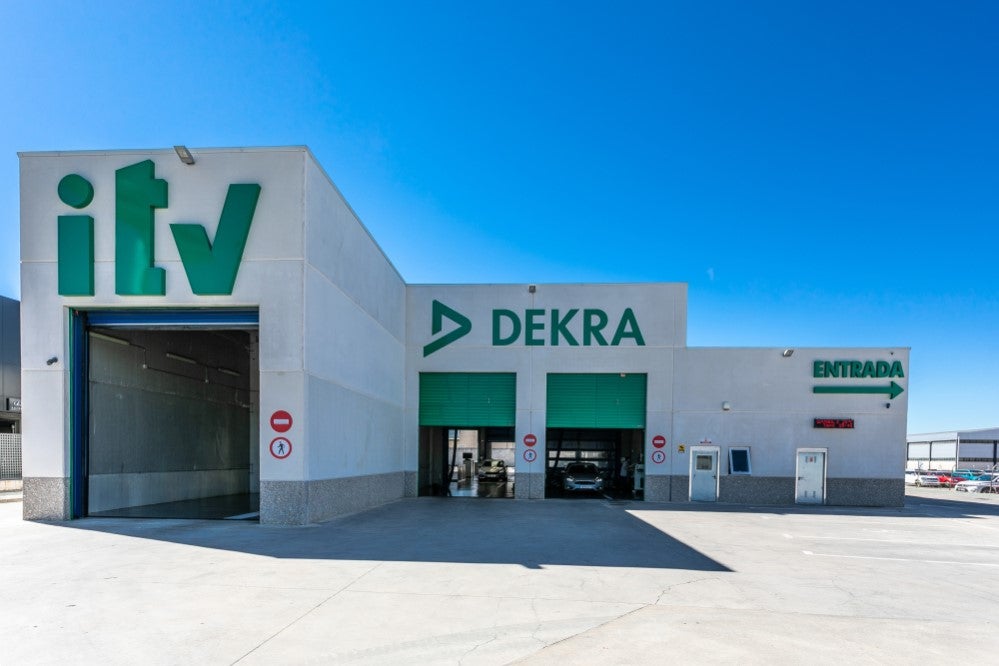Motor Finance brought a number of experts together to discuss turning partnerships into profit making the best use of inter-company relationships in F&I.
In this fifth round table discussion hosted by Motor Finance and Frontline Solutions, industry insiders were invited to Wakefield, West Yorkshire, for a discussion about the relationships between finance house representatives and the dealerships they serve and how these can be improved upon.
The following pages provide highlights from the conversation that followed, in which funders and dealers spoke frankly about the issues and frustrations they face.
How important are physical visits from finance representatives and how can their role in the dealerships be improved? Where are we now and where do we need to get to?
Ian Beardmore: From our perspective, it is extremely important.
While I look over finance and investment (F&I) as a senior manager, it is one among lots of other activities.
How well do you really know your competitors?
Access the most comprehensive Company Profiles on the market, powered by GlobalData. Save hours of research. Gain competitive edge.

Thank you!
Your download email will arrive shortly
Not ready to buy yet? Download a free sample
We are confident about the unique quality of our Company Profiles. However, we want you to make the most beneficial decision for your business, so we offer a free sample that you can download by submitting the below form
By GlobalDataFor me, the account managers are the people on the ground, delivering almost an extension of my workforce. As such, we have a very healthy relationship with our first-string finance providers.
What we value from them is a proactive approach they take to dealer visits, particularly using weekly report information from the DealTrack123 software.
They use that to prepare for dealer visits, so they already know the answers to some of the questions they are going to go in and ask: "Hows your finance over the weekend? Oh, we didnt do any cases. Thats strange, youve taken orders for 10 cars lets see what we can do."
So, they are working smarter than just going in and asking how things are doing, and it is a lot better for the business than just having a cup of coffee and talking about the football at the weekend.
Lorna Rossi: I think it is a lot more professional than it used to be as Ian says, gone are the days of popping in for a cup of tea uninvited and just seeing how the weekend sales went.
Again, it is important to make sure you plan those dealer visits and you prepare before you go and have something to talk about.
It is not just about showing your face and hoping that you will get more props because you popped in.
Nick May: It is refreshing to hear these comments it is something that we are quite passionate about.
As a finance rep, unless you have made an appointment and are going in to a dealer for a reason eg, to add some value to the artnership or the relationship then perhaps you should be questioning why you are going there in the first place.
In our sales team, our intention is always to go in there and look at the business and conduct a proper F&I review. We have been training our sales staff all this year we have got one more module to sit in October on how to take a more consultative approach towards our partners businesses.
So we are going back to basics in many ways. We are looking at our first-string relationships, we are looking at business managers pay plans, we are looking at the analysis they are conducting in terms of customer logs.
We are looking at what commitment individuals get from the management within those dealerships and whether they are supporting them in their activities, and we are looking at training.
Wayne Vickers: Certainly our perspective meshes well with some of the points that you are bringing up there.
Things like reviews, for example I tend to think a review is more useful if it as taken in the context of the dealerships F&I budget, as opposed to what the requirement of the finance house is.
You are aiming to achieve the dealers bottom-line requirement by formulating a strategy breaking down what visits are going to be made. The strategy will include what the content of follow-up visits will be, be it individual one-on-one training or development, and whatever is required to ensure they are achieving their objectives.
I also think, linked in with a manufacturer as we are, we work very closely with our brands in terms of sales information and objectives for the year. These are broken down by each individual territory and each individual dealership. This all feeds into dealer visits as well.
There are multi-million pound spends on each individual brand campaign launched and, from our manufacturers perspective, they want to make sure they are getting best value for what they are investing.
So the review process is a very rounded business approach and not just limited to F&I.
They are keen to know activity from other competitors in the area and what their marketing support is, as well as whether they are marketing the correct advert in terms of that competition.
Ian Beardmore: Yes, I think these factors have become more relevant for us certainly last year when we had our tender process for our first-string provider. The one we chose wasnt the cheapest out there, but provided an all-round package of support.
We dont flip based on who can offer the best rate it is about the support and the people. And that is the same, I think, with account managers. It is definitely more about what they can add, particularly in the coaching, in the one-to-one in the dealerships.
David Johnson: There is a clear correlation between the support you get from a finance house and profit. And problem solving is a big part of that.
For example, take a business manager in a busy used car environment he is not going to deal until a finance company says an application is accepted and then it is paid out.
If the application hits a snag anywhere in that process say because of a mis-spelt name other finance companies might get involved and that might cost the business money, either directly or in back-debit terms, or volume bonus.
A finance rep who knows how to smooth over the common problems can avoid this sort of situation
Fraser Brown: I have recently been managing F&I across six sites, and I classify finance representatives into different categories.
The first comes from the manufacturer with an interest in selling metal for the manufacturer and has less focus on our profitability as a dealer.
The second group are those at the periphery, the finance representatives that just come and show their faces and might get the odd deal if it is turned down by our first-string providers.
Then there are our key strategic partners those where we want to understand what they want from us, their rate card, the type of customer they want.
We want to get our efficiencies right with them, know the ratios for proposing right through to acceptance, and then to actually writing deals. Key strategic partners go into the dealerships for me, give my message out and work our objectives within the dealerships.
To be frank, it would be very good if we could get the manufacturer finance houses to deliver a similar message that works for them and for us.
Wayne Vickers: We find in some instances, we catch a certain amount of other non-core volume, ie, other manufacturer business, because dealers dont feel as though they have got somebody strategically working with them within their organisation.
In our business we have a responsibility to the manufacturer, but we also have a responsibility to our shareholders, and if there are other profit opportunities, we are very keen to have those conversations with those dealers who want to go down that route.
David Johnson: In praise of manufacturers, I think the information that we get back about legislation is with the greatest respect to all present probably more accurate from them than, perhaps, from the independent finance houses, because perhaps they have more to lose.
I think I would probably listen more frequently to a manufacturer finance company on some of this information, such as commissions disclosure, the Treating Customers Fairly initiative and the Consumer Credit Directive (CCD).
Jeremy Levine: We have 15 area managers and, as such, the physical visit is vital to us.
We have the best candidates or area managers doing the best type of visit a consultative approach to achieve this key strategic partner idea, where we work with the dealer and really get into how we can add value to their business.
That is it for us, and this tends to happen where we have good physical visits.
David Johnson: Theres been a shift overall.
At one point there was almost a finance account manager in the business three times a week and then it changed, with some providers, to managing a national account with one person at the end of a telephone.
Now it has come back a bit; people want the local service, but are getting a bit more value out of it.
Lorna Rossi: Everybody has had to cut costs over the past few years and good business managers can be very expensive.
Many have thought if you can do it with less on the ground, if you can centralise it and do a lot more phone calls rather than getting people out and about, then it is a lot cheaper. The industry has lost some really good people and that has definitely had an effect.
It is only now that we are starting to see a lot more happening in the marketplace and the business development manager role starting to come back, which is great, because we need them in this industry.
David Johnson: And as we know, with the capacity in the marketplace as it is, lenders can manage with fewer people in the field because there are fewer finance companies fighting for the business. So volume has gone up, but it has not necessarily been because of better service.
Fraser Brown: We recently had an interesting conversation with a third-string finance house with which we do several million pounds of business annually.
We bought a new branch which wasnt geographically suited to them and they decided they did not want to do business with us because it just wasnt in an area where they had a body. We have terminated our account with them.
Nick May: I think complacencys definitely crept in, but we take the opposite view you have got to be prepared to go that extra mile and, within reason, we have got to deliver what people want.
If not, those relationships wont prosper and last. If we are going to commit to a relationship it has got to be for the long term.
Lorna Rossi: They are not thinking about the future because there is not so much competition now, but in a years time they are going to regret not having a person out in that area.
If the economy worsens and the industry undergoes further cost-cutting, how will attitudes towards physical visits and personal relationships between funders and dealers change?
David Johnson: If you have got to cut costs, you have got to lose money somewhere you either shut the doors or you lose some visits. It is the guys able to resist that for the longest that will probably be here for the long haul.
I think its inevitable that if we do go into a tougher period, there will be cost cuts that we will see in our businesses.
Do you think it will be a different type of cost-cutting than the round that was seen in 2008 to 2009?
David Johnson: A lot was learned from that period. The account managers were typically taken out of some of our businesses.
As I mentioned earlier, one large finance house managed a large national account with one body. I cant see that happening again, but I can see some people looking after one-and-a-half times the area they have currently got.
Jeremy Levine: If you have got huge amounts of business already, and you are looking just to reduce it a lot, you are going to do it with less people. If you have not got a lot of business, you need more people to get it.
Lorna Rossi: But also you have got to make those relationships more efficient and more profitable. And you can do it with less people by having the right people doing that job.
Ian Beardmore: Some people dont want as much as others and are happy to have a finance company with a hands-off approach and to manage with an internal team.
That may change if cost-cutting becomes an issue, because head offices will look at cutting costs just the same as finance companies. However, it depends again on your business model we dont run a business manager model.
Is the business manager model the norm?
Nick May: It varies depending on the franchise. I think we have seen a trend away from it in certain cases.
I think a business manager in a reasonable-sized dealership is fundamental towards its profitability.
But things have evolved and changed very quickly over the past couple of years and, I dare say, it will do so again over the next 12 months.
Fraser Brown: I struggle to see how a sales manager on the road can run a proper-sized sales department.
In our business, with a sales manger and a business manager, our average sales department will knock out, say, 800 cars a year. As a result, just dealing with that number of deals and a sales team of five, you have got to have a business manager and a sales manager.
Jumping back to quality of people, we are all for having people quality issues and it is amazing the difference in the finance reps that sit in front of me.
Three of them I would consider to be fantastic and come prepared with concise information about business and performance, while another six I see well, I may as well just talk about the football with them.
Lorna Rossi: We have seen the true benefits of how a finance company and a dealership work together.
We are in a unique position in that we are a finance company that owns a motor dealer group.
And we have seen the benefits of that, especially so over the last few years. Ultimately, we cant sell a car unless we are convinced the customer will pay us back.
We have to ensure the processes are as transparent as possible, that the customer is confident in the product, and that the car is what they want.
Communication between the dealer group and finance company has had a really positive effect on the business; it is definitely communication that is key.
Wayne Vickers: Going back to cost-cutting a lot of the networks have cut back on costs.
Cost-cutting means people taking on larger roles, like a sales manager and business manager combined, and they dont have time to drill down on all points with regards to regulation in particular.
This is where claims management companies have seen opportunities in the past. My fear is I think there is potentially a bigger exposure with CCD coming up.
Lorna Rossi: We do a full income and expenditure check with all customers prior
to getting them fully approved, over the telephone, and all the calls are recorded. But the finance company needs to protect itself.
No matter what system you implement in the dealership, how can you be 100% sure they have actually stuck to that process and they have done everything they should have done?
Has the FLAs SAF (Specialist Automotive Finance) initiative helped with this? I gather it was one of the aims of it.
Lorna Rossi: I think that helps with customer confidence. There is a confidence that you are only selling after the customer has been through the tests and understands the industry and the products.
Fraser Brown: It also helps my confidence, knowing the team knows what its talking about. The tests are rigorous and clearly not just tick box exercises. People sometimes fail them and have to re-sit them.
David Johnson: I think it is a good coaching tool as well. But I think there is a lack of knowledge with the consumer.
You stick SAF on your door, but do consumers know what it means?
I think we need to get better customer understanding, otherwise we may lose momentum thats been gained.
Fraser Brown: Another issue. We have been working with our strategic partners to find out exactly what sort of customers they want to do business with and what sort they dont.
Some wont tell me, and I respect that, but if I dont give them the business they want, surely it will reduce their efficiency? But two of the finance companies we are working with have been very open about this.
David Johnson: A good business manager should be able to get it right 80% of the time. If a deals got 150% of CAP Clean, for example, you are not going to have to put it to three finance companies, are you?
Fraser Brown: But doing it through instinct and good guesswork is not as good as getting proper information out of finance companies.
Wayne Vickers: There are certain lending policies that all lenders wont disclose. They would probably disclose it to a partner, but they would even be reticent doing that, in case it leaks into the bigger arena, providing opportunities for other finance house to target that type of customer.
Nadim Saad: It seems to me like the sales staff would often like to know what the lending criteria are and they would like to share this information to increase efficiencies, but then the credit risk department doesnt want to disclose anything.
We’ve seen this with several finance companies and the reason is they dont want anyone to be able to reverse engineer their score cards.
Nick May: You need to be able to tell your partners what it is that you want in terms of a profile.
We are not talking about going into detail about score cards, because with all funders these are very specific to their business and theyre not going to relinquish that information.
I still think you have a responsibility to your partner to tell them typically what sort of customer youre looking to underwrite.
Lorna Rossi: Why wouldnt you? Because otherwise efficiencies would be poorer if you can be upfront about the profile of the customer you are looking for, you will get fewer proposals and you will accept more of them.
Andy Shuter: I have been doing a lot of work looking at the leisure industry, and at products for caravan parks.
The thing that struck me straight away is, some of the lenders are now adopting a policy where their customers score can be determined, and their acceptance be determined, on the future viability of that customer to that bank.
So, for example, if you are a 25 year old, you are an attractive proposition. We have seen banks turn down customers in their 50s with massive deposits, with extremely high credit-growth files. We can only draw the conclusion these particular banks want to buy customers for life.
A subject close to my heart is credit profiling, but what is coming out loud and clear is there is no exact science to how lenders lend money
How much authority should finance reps have on behalf of their lender?
Nick May: Everything has become a lot more automated in all of our businesses. Our message to all our guys is always to take a common-sense approach to these things. If they need to, they have the authority to liaise with the underwriter to overturn a decision as long as it is within reason.
Ian Beardmore: There are great account managers who try and contact people back at head office in the right department when problems come up and the internal politics and red tape are now stopping them from being able to get through to an underwriter.
You dont talk to underwriters. Nobody does. In some businesses you cant get through to speak to someone in a certain department because they dont talk to people externally. You have got to go through someone else.
The finance companies are finding now, because of all the red tape, their account managers are struggling to get through to people who can make those decisions. It is a frustration.
Wayne Vickers: Going back many moons, people used to pick a phone up. Business managers would even have a rapport and relationship with an underwriter. As volumes start to ramp up, how much time do lenders want underwriters spending on the phone talking to someone about a deal when there is another 20 waiting to be underwritten?
David Johnson: An account manager should have slightly less authority than an underwriter, so he is not spinning a story that the dealers just told him. But certainly more than a payout clerk.
So, if they have seen the driving licence and can actually see it is legitimate, but doesnt fax properly, they should be able to press a button and make things happen.
Nick May: The other thing is these guys should be educated in the underwriting process because, for them to be able to chase a deal, they have to know if it is actually worth chasing.
Wayne Vickers: My guys have all spent time in underwriting, in payout, on residential business manager courses before they actually go out to the network. So they have got a reasonably broad knowledge to draw on.
Are there any other areas that anyone feels are not particularly well represented in the business right now, where you would like to see more from reps?
Nick May: Looking from a dealers perspective I would like to think things arent just black and white. If I wanted something very specific, very bespoke, in terms of product, my rep should be happy to entertain that conversation.
And, yes, you as a lender might not have everything within your armoury or your portfolio, but I think, given the times we all face as businesses now, and the fact that peoples budgets are being stretched even further, we need to start to look at being a little bit more innovative with products and to be a little bit more bespoke.







